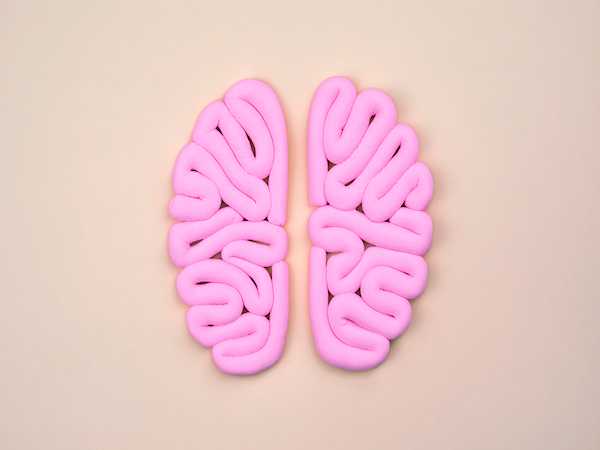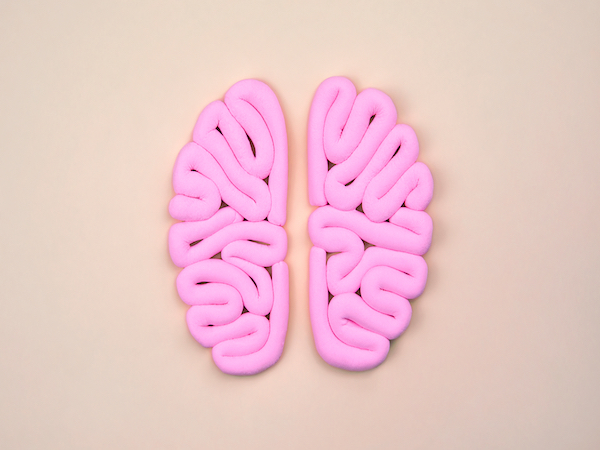Ever since the pandemic, many people have begun to realize that their mental health has been suffering. With the changes we’ve seen globally, it’s no surprise why mental health issues are on the rise.
To help you understand why mental health is important, as well as some ways to improve your mental health, the team at Felix has put together this page of information for you.
If you’re already working on habits to improve your mental health, and you’d like to talk to a practitioner about what medications may be beneficial for you as part of your treatment plan, just complete a short online assessment to get started.

Talk to a healthcare practitioner about treatment
Get support for anxiety, depression, and mental wellness 100% online with fast access to care.
Why is Mental Health More Important Than Ever?
Both physical and mental health are equally important components of your overall health.
For example, depression is known to increase the risks for many different types of physical problems; particularly long-lasting conditions (i.e., diabetes, heart disease, stroke, etc.). Similarly, having chronic conditions that impact your health can increase your risks of experiencing mental illnesses, like depressive disorders.
So, how important is mental health? Very. But you may be wondering exactly what is good mental health? This looks a little differently for each person. In general, it means having your mental, spiritual, and emotional needs met, so that you feel overall content with life; even when things are tough.
No one is happy all the time. There’s nothing unhealthy about feeling the whole spectrum of emotions from time to time, but when it starts to impact your daily quality of life, then it needs to be addressed in a healthy way. Otherwise, it can lead to mental health issues.
Rather than consider what bad mental health looks like, let’s consider what good mental health can do to improve your daily life. Some of the benefits of good mental health include:
- Coping with the stresses of life
- Being physically healthy
- Having good relationships
- Making meaningful contributions to your community
- Working productively
- Realizing your full potential

What are the Benefits of Taking Care of Your Mental Health
It doesn’t matter your age, the importance of your mental health for your total well-being can’t possibly be overstated. Psychological wellness affects many facets of your life, and when it’s impacted, it can lead to negative behaviors.
With that in mind, let’s dive into some of the benefits of good mental health we mentioned above, in more detail:
Stronger Ability to Cope with Life’s Stressors
When your mental and emotional states are at their peak levels of good health, the challenges that you’ll face in everyday life become easier to manage and overcome.
Mental health issues brought on by life (i.e., relationship disputes, financial woes, problems at work, etc.), can lead to unhealthy choices in ways to improve your current mental health, such as: alcohol, drugs, isolation, tantrums, or fighting.
Maintaining a stable mental state can encourage you to make healthier choices in coping mechanisms, which is much better for your overall health, and just one of the reasons why good mental health is important.
A Better Self-Image
Your mental health directly correlates with the personal feelings that you carry about yourself. In fact, overall mental health plays a major part in your self-esteem. Having confidence in yourself is often a good indicator of a healthy mental state.
If your mental health is flourishing, you’re more likely to focus on the good in yourself, rather than spending time and energy dwelling on your imperfections (and we all have them). Mental health is important for how to hone in on these qualities in yourself.
Improving your self-image and maintaining good mental health reduces your mental health risks, as well as makes it easier to remain ambitious and strive for a healthy, happy lifestyle.
Healthier Relationships
When you start to use habits to improve your mental health, and can maintain good mental health long-term, you’re more likely to be capable of providing your family, friends, and loved ones with the quality time, affection, and support they deserve.
When you’re not in a state of emotional distress, it can be a lot easier to show up for the people you care about when it really matters. Another reason why good mental health is so important.
Better Productivity
Coping with depression or other mental health disorders can have a huge impact on your productivity levels. You may not feel like working, or be able to focus when you’re at work. This can lead to missed work or reduced ability to complete your job effectively.
Conversely, when you’re feeling mentally strong, it’s much more likely that you’ll be able to work efficiently, as well as provide a higher quality of work.
Higher Quality of Daily Life
When your mental well-being is thriving, your quality of life may approve alongside it. This may give you the energy you need to participate more in community building activities, or simply being active in your daily life.
Volunteering in soup kitchens, at food drives, shelters, or fundraising events for local community groups can not only be good for your mental health, it’s good for the mental health of those around you as well. When a community comes together, everyone wins.
Additional Benefits
There are lots of other benefits of good mental health that we haven’t even discussed, like picking up new hobbies or interests, and making new acquaintances or friends in your area. Even traveling to new cities can be a way to improve mental health, while staying active and having fun.

What are the Risks of Ignoring Your Mental Health?
There are some definite mental health risks that go along with not actively prioritizing your mental health. It can start to impact basically every part of your life. Here’s a few examples of the dangers you could face for not maintaining good mental health:
Substance Abuse Problems
Having mental health issues long-term can lead to thrill-seeking behaviors to help manage negative emotions, such as substance abuse.
Regardless of whether you’re using alcohol, tobacco, or recreational drugs, all of these substances can have a huge negative impact on your physical health if not controlled.
Mental health issues can also lead to other excessive behaviors, such as overeating, binge eating, or alternatively, refusing to eat. It can also lead to poor dietary choices and habits. Over time, these elements can also drastically impact your overall health.
Relationship Issues
When you’re struggling with your mental health, it can feel difficult to communicate your emotions in a clear, relatable way. This can lead to communication difficulties in your personal relationships, which can put a strain on you and your loved ones.
People with depressive disorders are known to withdraw from social interaction, cutting back on their communication. By the same token, people with anxiety-based disorders may avoid social situations, because they worry about doing something embarrassing or having a panic attack.
Long-term mental health issues can impact your ability to trust those around you, which can make it hard to establish new relationships or maintain existing ones. It can also make intimacy challenging for some people, which can affect your romantic relationships as well.
Potential Impact on Your Job
Over time, not maintaining good mental health can impact your ability to efficiently get work done on a daily basis. It can also encourage distraction or absenteeism, which may impact your standing in the workplace, as well as your relationships with peers or managers.
Eventually, if left unchecked, this can lead to job loss. With so many people seeking work in most industries, employers aren’t likely to keep people around who aren’t performing well at their assigned tasks.
And while it may not be a fair perspective, there are a lot of stigmas that are attached to mental health issues, which may work against you with potential employers when applying for new positions.
Financial Challenges
Financial problems are another potential risk of ignoring your mental health. Not only due to the issues we just discussed regarding excessive behaviors (and their associated costs), as well as ongoing absenteeism at work, but also due to the expenses of taking back control of your mental health.
When mental health problems are left unchecked for long periods of time, it can make it much harder to break negative thought patterns, or implement healthier habits to improve mental health.
In turn, this can result in therapy and medication treatments, which can take months or years to begin having a positive impact. That’s why mental health is so important, and you should seek assistance sooner rather than later.
If you’d like to talk to a practitioner at Felix about what treatment options might be beneficial for you as part of your mental health treatment plan, complete a short assessment to talk to a practitioner today.
How to Practice Positive Habits to Boost Your Mental Health:
There are some great habits that you can incorporate into your daily life as ways to improve your mental health. Some of these habits to improve mental health include:
- Taking up a regular exercise routine
- Prioritizing rest and sleep every day
- Trying meditation (using self-guided meditation or guided meditation videos with a meditation coach)
- Learning coping skills that you can use to manage life challenges
- Keeping in touch with your loved ones
- Maintaining a positive outlook on life, in spite of problems
- Eat three healthy meals a day
- Seek psychotherapy when needed to talk through issues
- Find a new hobby to enjoy

How is Mental Health Connected to Physical Health?
There are studies that have been completed showing the relationship between physical and mental health. When one struggles, the other inevitably suffers to some degree as well. In fact, poor mental health is a known risk factor for some chronic physical conditions (i.e., diabetes, heart disease, stroke, etc.).
Think of it like a tug of war. When you’re experiencing a serious mental health condition, you’re at a higher risk of experiencing chronic physical conditions. Conversely, if you’re experiencing chronic physical conditions, you’re at a higher risk of developing mental health issues.
Understanding the links between physical and mental health are also important. There are some things that we can do to maintain both of these key elements together in our daily lives, such as:
- Ensuring you get regular exercise and/or increasing the levels of physical activity in your routine
- Focusing on making sure you always have access to nutritious food, so that you can maintain a well-balanced diet
- Maintaining an adequate income, so that you aren’t adding stressors related to financial concerns
- Fostering social inclusion, by making an effort to be active in your community and within your personal social circles
- Reaching out for social support as needed, so that you can get assistance as needed and avoid letting your mental health decline
When to Seek Help of Mental Health Issues
If your mental health is beginning to impact your daily quality of life, it’s time to talk to a healthcare provider about what options are available to you. Complete a short assessment, at your convenience, to get started talking to a practitioner at Felix today.
They’ll be able to assess your situation, as well as potentially provide you with potential treatment options, based on your health, medical history, and current condition.
With Felix in your corner, you can take back control of your mental health and quality of life, so that you can get back to living life on your terms – the way it should be.




